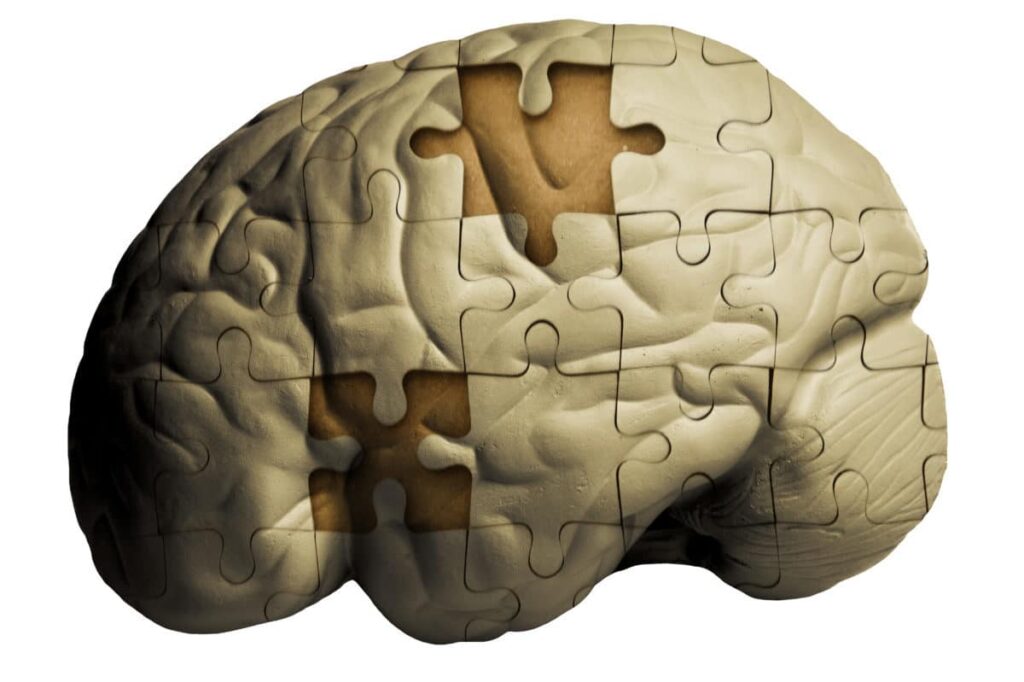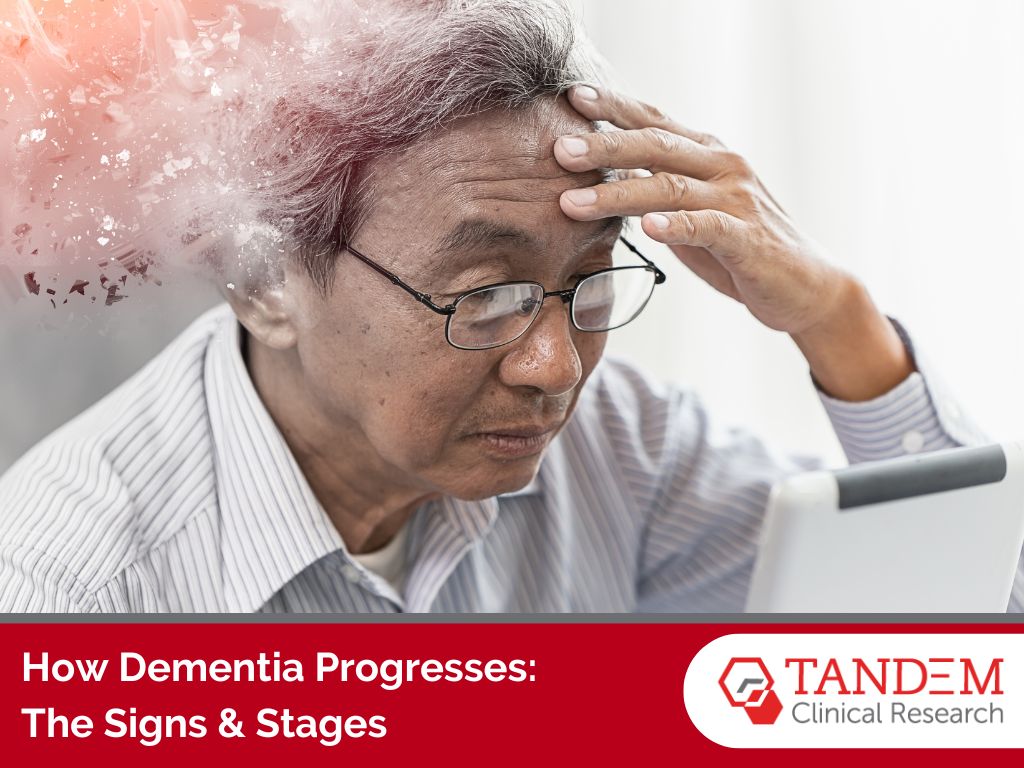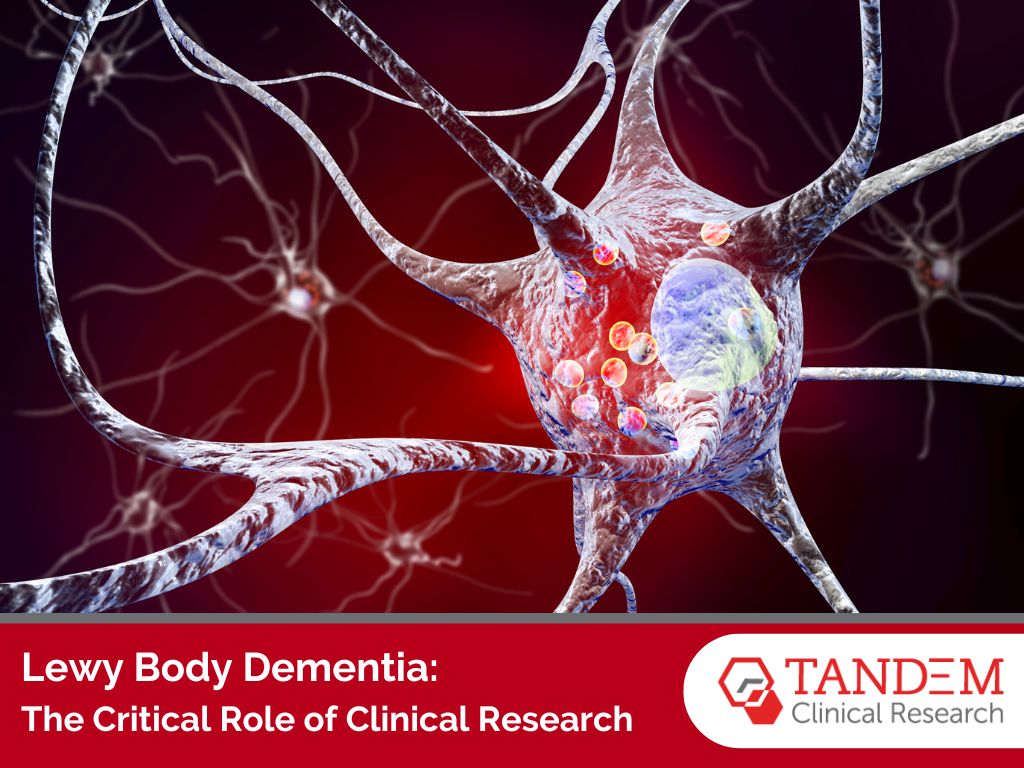Alzheimer’s disease is a neurologic disorder that causes the brain to shrink progressively (atrophy) and results in the death of brain cells. It affects an estimated 10% of Americans over the age of 65 and as many as 50% over the age of 85.
The disease is considered to be the most common cause of dementia, in which patients experience a continual decline in social, behavioral, and cognitive skills. There is no current cure for Alzheimer’s, and its mortality rate has increased in the past 20 years.
Fortunately, there is ongoing research on the disease. Scientists continue to learn about its prevention and treatment through Alzheimer’s clinical studies.
About Alzheimer’s Disease
Alzheimer’s disease is not a normal part of aging. Most patients first experience forgetfulness and changes in mood and/or judgment. As the disease progresses, their forgetfulness may evolve into more severe memory impairments and challenges in performing daily activities.
During advanced stages of Alzheimer’s disease, complications from severe loss of brain function — such as malnutrition, dehydration, or infection — can result in the patient’s death.
What Causes Alzheimer’s?
Researchers believe Alzheimer’s disease is triggered by the abnormal build-up of proteins in and around the brain cells. This build-up starts years before symptoms typically appear, but it’s unclear what causes the process to begin.
Once the brain cells are affected, chemical messengers send fewer signals. Different areas of the brain begin to shrink, and issues related to memory, language, and/or vision can appear.
Risk Factors for Alzheimer’s Disease
Although we do not know exactly what causes Alzheimer’s, we know some factors that elevate patients’ risk for the disease. These include:
1. Age
This is the greatest known risk factor for Alzheimer’s and other kinds of dementia. Dementia is not a standard part of aging, but as patients get older, their risk of developing Alzheimer’s and other problems increases.
Most individuals with Alzheimer’s are 65 or older. After age 65, the risk of Alzheimer’s doubles every five years, peaking in patients over 85.
2. Family History
If a patient has a parent, sibling, or blood relative with Alzheimer’s, their risk of developing the disease is higher than others. The disease tends to run in families through genetics, shared environmental factors, or both.
3. Injuries and Lifestyle
Patients cannot change their age or genetic factors, but they can influence their risk of Alzheimer’s by making certain lifestyle choices. Research is continuously revealing new ways that people can decrease their risk of dementia and effectively manage related health conditions.
For example, evidence points to strong ties between brain and heart health. Because the heart pumps nourishing blood to the brain, heart conditions can contribute to the future risk of Alzheimer’s.
Another possible link lies between traumatic brain injuries (TBIs) and Alzheimer’s. When patients injure their heads earlier in life, their risk may be higher as they age. Avoiding contact sports and dangerous activities, or at least wearing a helmet while doing so, can help lower the risk.
Symptoms of Alzheimer’s Disease
A person with early Alzheimer’s disease may struggle to remember some things or organize their thoughts. As the disease progressors, more changes will happen, leading to:
Match With Alzheimer’s Clinical Trials
Do the symptoms above sound familiar? Has your loved one been diagnosed with Alzheimer’s or are they experiencing memory loss? They may qualify for a trial nearby. Tandem Clinical Research will match your family with:
- Cutting-edge treatments
- The latest clinical studies
How is Alzheimer’s Diagnosed?
Alzheimer’s disease can be diagnosed in several different ways. Typically, a doctor will evaluate the patient’s symptoms and conduct certain tests. They may also talk to the patient’s friends and family members to learn about behavioral warning signs.
Other kinds of assessments include mental status and neuropsychological tests. These look at the patient’s cognitive abilities, memory recall skills, and any indicative signs of Alzheimer’s.
Preventing Alzheimer’s Disease
Alzheimer’s is not entirely preventable, but recent research indicates that there are ways to lower the risk of the disease. Currently, medical professionals recommend:
Protecting the Heart
Increased risks of cardiovascular diseases also increase the risk of Alzheimer’s disease.
Maintaining Strong Social Connections
It’s thought that the stimulation of social connections strengthens nerve cells in the brain, potentially helping to prevent dementia.
Staying Mentally Active
Playing brain-stimulating games, doing puzzles, and conversing with others can assist with the prevention of general cognitive decline.
Physically Exercising
Staying active increases blood and oxygen flow to the brain. This also contributes to heart health, which plays a role in decreasing the risk of Alzheimer’s.
Eating Healthy Foods
Specifically, doctors recommend eating heart-healthy ingredients, limiting sugars and saturated fats, and ingesting plenty of fruits, veggies, and whole grains.
Treating Alzheimer’s Disease
Alzheimer’s disease is complex, and there’s no “best” treatment plan. Different patients have different needs, and research into treatment is still ongoing.
However, doctors do have some well-supported treatment tactics. This includes the use of:
How to Care for Loved One With Alzheimer’s
Create a Safe Environment
People with dementia are at a higher risk of injuring themselves. To ensure their home and living quarters are safe, we recommend:
- Removing any potential tripping hazards (cords, rugs, etc.)
- Using locks on cabinets/doors to dangerous substances or materials
- Lowering the temperature on the hot-water heater to prevent burns
- Taking fire safety precautions (removing matches and lighters, etc.)
The degree of protection the individual needs may vary, depending on the state and progression of their Alzheimer’s. The longer they have the disease, the more precautions you will likely need to take.
Minimize Frustrations
Your loved one may become agitated when once-simple tasks become increasingly difficult. Try to limit the challenges they face and modify regular tasks. This might include:
- Establishing a familiar daily routine
- Providing clear, understandable instructions
- Reducing distractions, such as TVs or loud music
Don’t do everything for your loved one – even if that seems like the best way to care for them. Grant seniors with Alzheimer’s some independence by allowing them to contribute, make choices, and tackle certain tasks independently.
Build a Personal Treatment Plan
Every person with Alzheimer’s experiences its symptoms and progression differently. Therefore, one-size-fits-all treatment plans don’t work. You’ll need to be patient and flexible as you find the best solutions for their unique needs.
Alzheimer’s Clinical Trials
Tandem Clinical Research connects Alzheimer’s patients with clinical trials for pharmaceutical, biotech, and medical device companies. If you live near Orlando, New Orleans, or New York City, we’ll help you find trials in your area.
Alzheimer’s worsens over time and currently has no cure – but scientists haven’t stopped researching treatments and learning about the disease.
If your loved one has Alzheimer’s, consider talking to them about joining a clinical trial. Their participation can contribute to discovering crucial solutions, both now and in the future.
Match With Alzheimer’s Clinical Trials
Do the symptoms above sound familiar? Has your loved one been diagnosed with Alzheimer’s? They may qualify for a trial nearby. Tandem Clinical Research will match your family with:
- Cutting-edge treatments
- The latest clinical studies
- Research groups in your area




